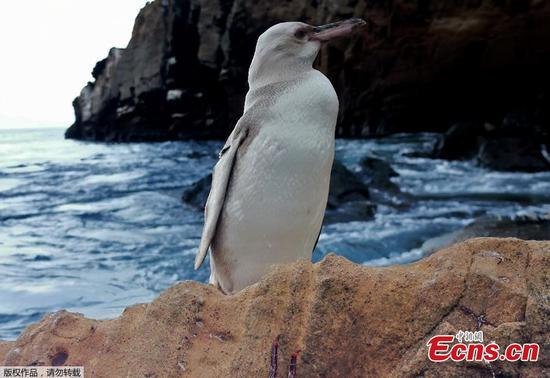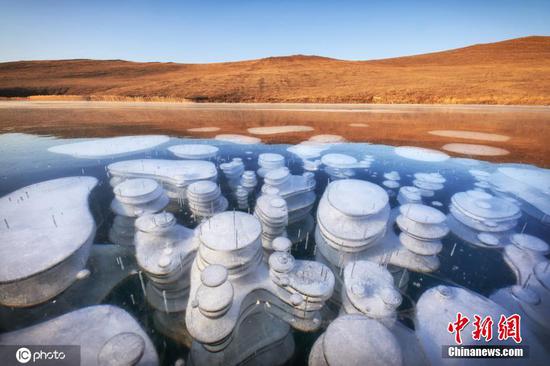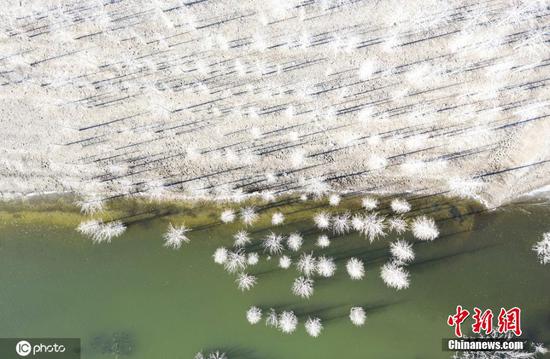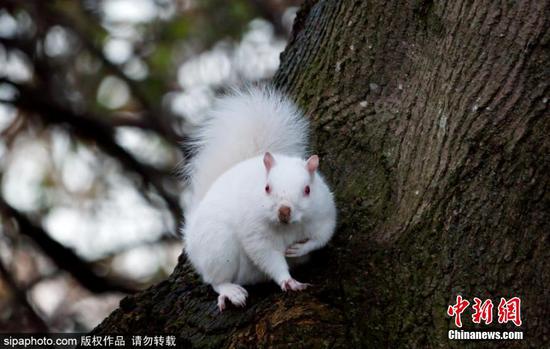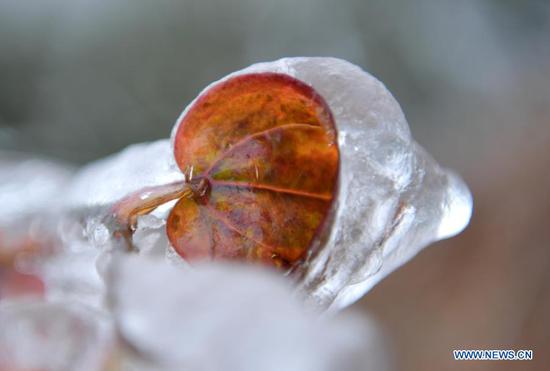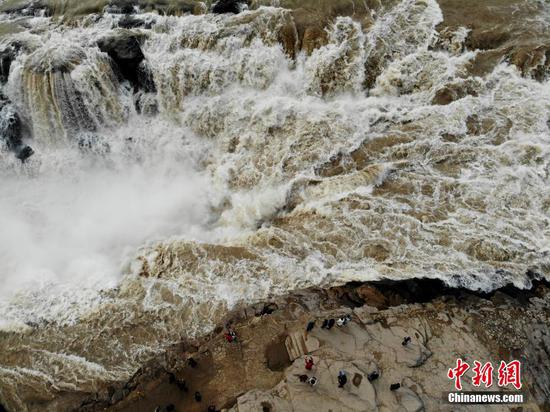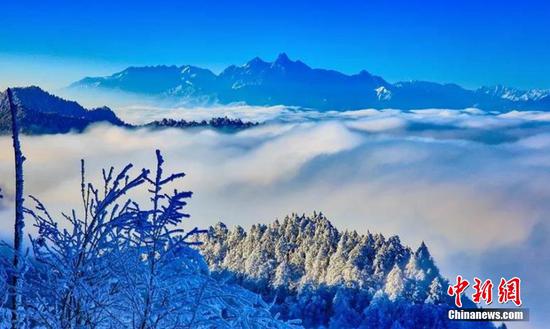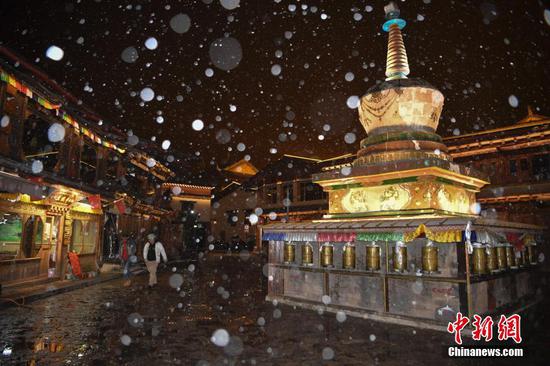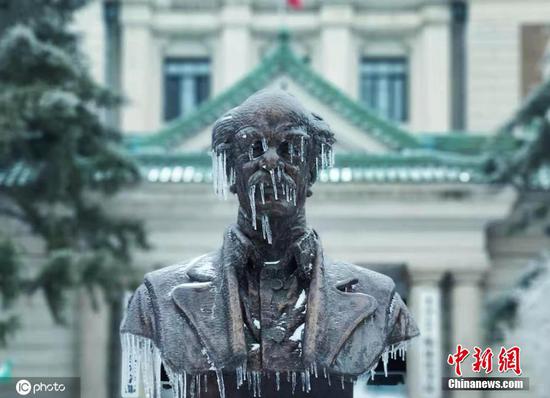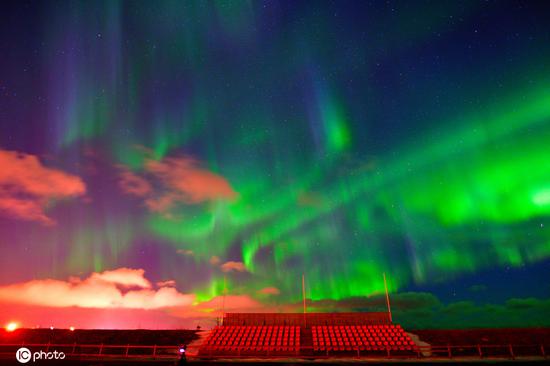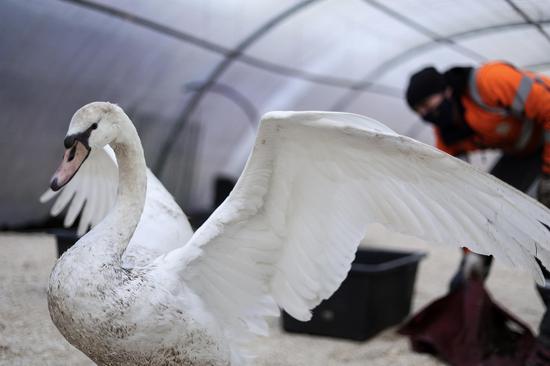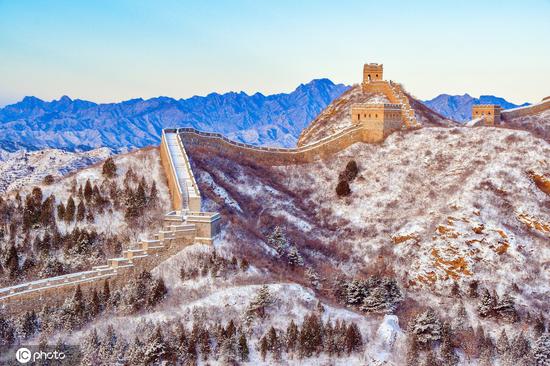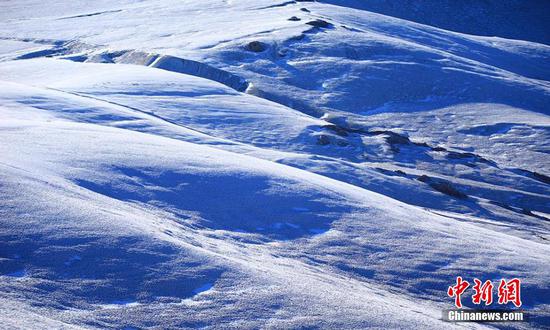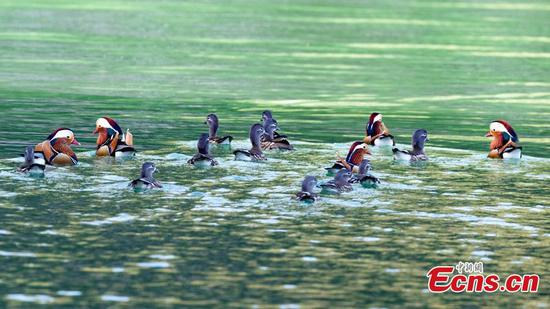Chinese scientists have discovered that Antarctica's ice shelves, especially those on its northernmost peninsula, melted at an accelerated rate from 1999 to 2019, according to an annual report published on Friday.
Climate change and extreme weather may be contributors to environmental changes on the world's southernmost continent and may have significant implications-from altering animal habitats to increasing global sea levels.
The annual report has been published by the Ministry of Science and Technology's National Remote Sensing Center since 2012. It aims to provide key global data for climate research, food security, urban development, natural disaster mitigation and other subjects crucial for sustainable growth.
Wang Qi'an, director of the center, said the report represents China's commitment to tackling climate change and environmental issues with the international community.
"This year is the first time our report covers data from Antarctica, which is the biggest cold source in the world's climate system and a key indicator of climate change," he said.
Antarctica has an area of 13.9 million square kilometers, about 12.3 million sq km of which are covered with ice. The average thickness of the ice sheets is 2.1 kilometers, with the thickest part reaching over 4.9 km, and the continent currently holds about 26.5 million cubic kilometers of ice.
Antarctica holds about 90 percent of all ice on land, as well as 70 percent of all the fresh water on Earth, the report said. If all that ice melts, it would raise the global sea level by 58.3 meters.
Most ice sheets, particularly those located in the inner parts of the continent, were generally stable from 1999 to 2019. But ice shelves, which are floating sheets of ice connected to a landmass's coasts, melted at an accelerated rate, the report said.
During the period, around 19 percent of Antarctica's area experienced melting. This is usually not a cause for concern as it is natural for ice to melt and refreeze on the continent, said Wang Zemin, a professor of geodesy at Wuhan University and one of the key experts behind the report.
However, the Antarctic Peninsula-the warmest and wettest part of the continent, where the ice does not refreeze fast enough-accounts for 66 percent of all the ice melt on the continent, making it one of the more fragile regions sensitive to climate change, he said.
Another issue that warrants further investigation is the increasing intensity of iceberg calving, which occurs when large chunks of ice break away from a glacier. From 2005 to 2019, scientists recorded 1,786 instances of calving of chunks that were larger than 1 sq km. On average, about 3,400 sq km of ice shelf break off Antarctica per year.
"These collapses can happen naturally even when there is no global warming, but now the frequency and intensity of these events are on the rise," Wang said. "If more ice shelves break off and melt in the ocean… it would raise the sea level."
This would also have consequences for animals living on the icy continent, most notably penguins.
"Emperor penguins are the iconic poster child of Antarctica and are one of the key organisms that can reflect the health of the continent's ecosystem," he said.
Now, with the ice constantly breaking, they must frequently move their colonies to new areas to find shelter and food, which can be difficult for the stubby, waddling creatures and ultimately result in a population decrease, Wang said.
But for Adelie penguins, another prevalent species on Antarctica, recent data showed a population on the rise. It was due to global warming melting away ice and exposing more land for them to live on.
Meanwhile, rising sea temperatures increased the amount of algae in waters around the region, thus increasing the number of shrimp and other small organisms that the penguins can eat.
"This discrepancy highlights the complex effects climate change can have on the ecosystem and the world," Wang said. "But our model shows that if temperatures keep rising, it would eventually cancel out the positive effect and lead to a population decrease for Adelie penguins."












